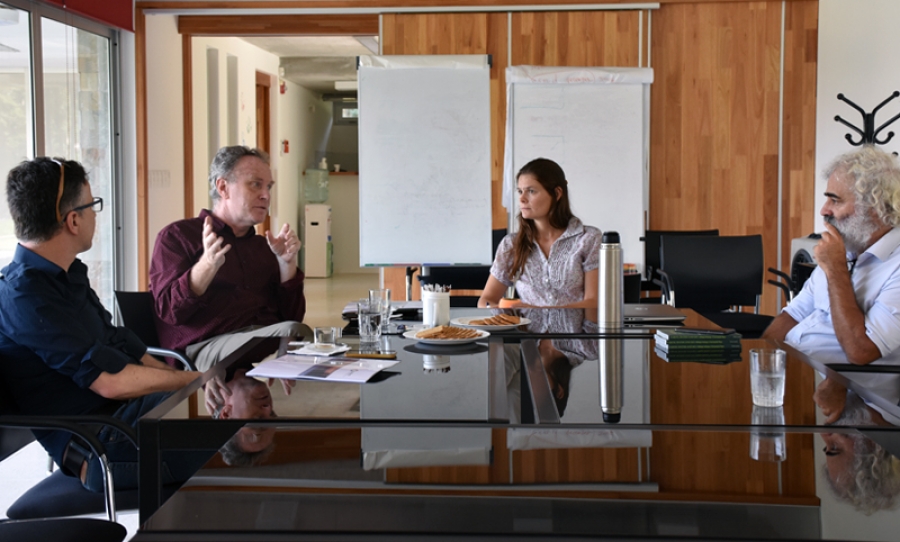Future Earth establishes collaborative linkages with SARAS

Last April 26th, SARAS Institute welcomed the visit of Owen Gaffney (Director, International media and strategy- Stockholm Resilience Centre and Anthropocene analyst and strategic communications – Future Earth) and Alistair Scrutton (Global Communications Director – Future Earth).
The close linkages that SARAS maintains with the Stockholm Resilience Centre (SRC) motivated and enabled this gathering between the communicators and SARAS Executive Team members during their short visit to our country.
The meeting enabled the exchange of reflections about the need and relevance of fostering knowledge transfer in matters of sustainability. Translating scientific knowledge to make it accessible and comprehensible is key when trying to reach decision makers and business people as a way to foster and accelerate changes towards more sustainable futures. At the same time, different collaboration possibilities were explored in matters of information networks with an emphasis on climate change issues.
Future Earth is a global organization and community that works with more than 30 projects distributed around the world through their regional centres and offices located in Asia, Middle East, Africa, the Americas and Europe. The key objectives of this organization that promotes the Sustainable Development Goals, the Paris Agreement on climate change and the Aichi Biodiversity Targets, among others, are to facilitate and amplify research, mobilise networks, spark innovation, and turn knowledge into action by co-designing and co-producing knowledge and tools.
One of their main outputs of the organization is the Anthropocene magazine, available free-of-charge in paper, digital and online formats to offer scientific journalism as a way to showcase and disseminate innovative solutions to problems and topics related to sustainability. Through this, they seek to close the knowledge gap between scientific knowledge and decision makers by incorporating it into government, business and community decisions and policies.
To learn more about Future Earth, visit their website here.
Click here to access Anthropocene magazine online.
